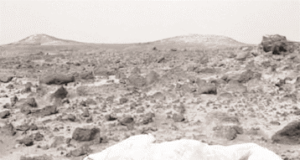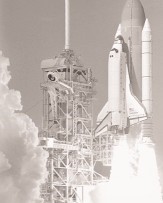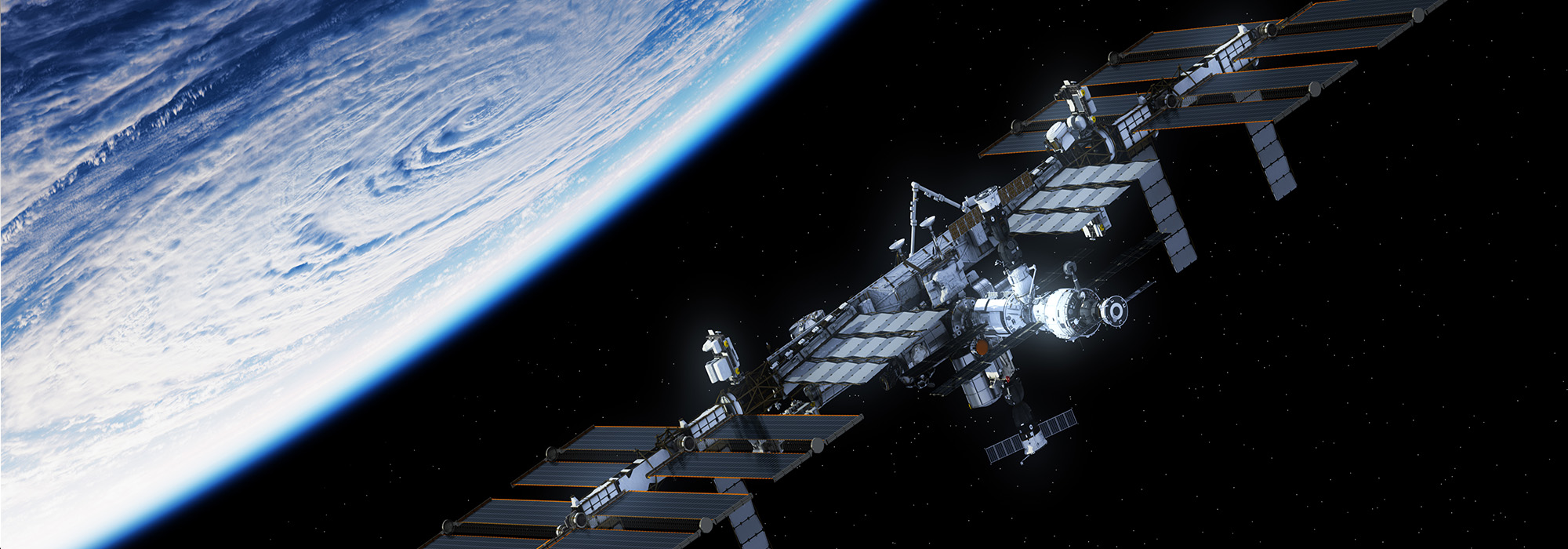
William Watson: What do you think of the International Space Station (ISS)? Does it make sense in and of itself? And does our role make sense? Do you think it’s a good idea?
Stephen Strauss: In general terms, I find the space station extremely problematic. I try to think of examples in human history of an equivalent kind of technological effort. The ISS is continually likened to past explorations in ships and planes. But with those technologies it was obvious why they were being used. The space station looks like it’s being built to find out what happens aboard the space station after it’s built. That’s interesting, but we’re talking about a lot of money and it’s not actually clear what happens next.
The usual argument is that this is a stepping-stone to the moon or Mars, but it’s not clear why one would want to go to the moon or Mars. I was thinking of the clipper ships the other day–you know, those great, wondrous and beautiful ships whose purpose it was to go to India, China, get tea and race back to England. You got a real benefit from bringing the first of the new harvest back if you got a high market price. And there was a big trade between those two parts of the world. But there’s no trade and won’t be as far as one can see from Mars and the moon back to Earth. It will be a one-way movement. And it’s not clear what we would do when we got there. So, as a beneficial technology the ISS in a category by itself because, if you like, it’s not attached enough to greed.
With the clipper ships, you got a real benefit from bringing the first of the new tea harvest back if you got a high market price. And there was a big trade… But there’s no trade and won’t be as far as one can see from Mars and the moon back to Earth. It will be a one-way movement.
William Watson: An economist is bound to like such an argument.
Stephen Strauss: NASA advances these arguments that the Space Station somehow deepens basic exploration, that it’s an expression of human nature, that we’re an exploratory species that withers and dies if we can’t do more exploration. I think that is a distortion of Frederick Jackson Turner’s closing-of-the-frontier thesis. It doesn’t apply to most people and most places at most times around the world. For most of human history most people didn’t go much further than the next little village, and of course it’s also a thesis that applies equally to rats and pigs and lice and other exploratory kinds of creatures. Generally people have had to be forced to move: They go to places because there’s a benefit from doing so and they pursue it.
What’s the benefit from the Space Station? Anything you manufacture in space is going to cost us a million dollars to get up there to manufacture and bring down. Each shuttle flight costs something like half a billion US dollars. What is it that you can make up there that would be affordable to humans down on earth? There might be something, but the list of things you can think of is very, very short.
William Watson: What about the argument that if you’re Columbus putting together a fleet, you’re heading off into the great unknown, and you simply can’t do a cost-benefit analysis and say if we can save ourselves five days, we can make x million dollars. What about the argument that, like much basic research, this is a flight into the unknown and though we can’t guarantee there will be a payoff, something big and beautiful might come out of it that we just can’t anticipate.
Stephen Strauss: Well, maybe. Could be. Should be. But who knows? There might be something like that. I would argue that if you’re someone who says that the basic purpose of this is a stepping-stone into further exploration of either the solar system or the universe, that maybe what you should say is, ”Well, perhaps before we we take this next little step we should wait until a much better technology will come along for getting up and out of here.” Think for a minute about da Vinci and his sketches for what looks like a helicopter. If you’d said at the time, ”Look, da Vinci’s figured out what could be a helicopter, so let’s put a big research effort into helicopters.” Well, of course, you don’t have engines. And you don’t understand anything about the principles of flight. You’re much better to wait several hundred years until people in a variety of areas advance far enough to allow you to do something in terms of flight that is more sensible and practical and has a more immediate payoff.
The problem is, if the space station doesn’t lead to anything but a greater understanding of gravity, was it worth a hundred billion or two hundred billion? I’d say probably not. And while you say, ”Well, what if we discover some new and different thing that we never thought we could discover before?”, well, what if we don’t? As a Canadian taxpayer, do I get my refund cheque if we don’t find anything new?
Ultimately, the argument that we wouldn’t do any directed research if we didn’t have this huge, great, idealistic mission to attach it to is, I think, just baloney, frankly. We do a lot of directed research when needs for things arise, and it makes more sense to do that kind of stuff without a cloak of faith in the space station. If you want to make Tang, it probably makes a lot more sense just to go ahead and make Tang than to attach Tang to the entire moon effort.

William Watson: What’s your impression of our role in the space station, of whether we get much say and of what it’s costing us in terms of other scientific projects we could be engaged in with the same money?
Stephen Strauss: We have been actively involved in the development of the remote manipulator arm–the Canadarm–in its various incarnations. I’d suggest that if you press very hard, it’s not clear exactly what the Canadarm’s spin-off has been. We’ve gotten expertise in this area, and some aerospace companies who have had contracts with NASA and have learned a fair bit about robotic positioning and so on.
But the problem is that space is really a very different place to do things in. You’re dealing with weightlessness, and that means that the issues that arise on Earth with similar kinds of arms are very different. The last time I looked at this, there actually hadn’t been much ground-based use for this technology. Basically, it’s great public relations. You get the flag involved and it’s a lovely photo, and the challenge of using it to try to construct things up there is very interesting. I used an arm simulator once at the Space Agency. It’s actually my idea of a really good video game, because building things in space is so challenging. Your orientation is very weird.
Ultimately, the argument that we wouldn’t do any directed research if we didn’t have this huge, great, idealistic mission to attach it to is, I think, just baloney, frankly. We do a lot of directed research when needs for things arise… If you want to make Tang, it probably makes a lot more sense just to go ahead and make Tang than to attach Tang to the entire moon effort.
William Watson: But it’s sui generis? It’s only useful up there.
Stephen Strauss: The argument is that there will be spin-offs. OK, exactly where are those spin-offs? I might be wrong but it doesn’t look like one of those kinds of technologies where there are 50,000 applications. They talk about doing things in hazardous places–radioactive sites, say–where you don’t want to send people in and so you send an arm to be moving stuff around, but there aren’t many of those around. The ISS is not the refrigerator.
William Watson: You’re not opposed to government subsidies to basic research in general, are you?
Stephen Strauss: No. I think the various space probes and the Hubble telescope and so on seem to me quite an interesting and appropriate investment. If you put a telescope up beyond the atmosphere, you can see things that are very hard to see from down below. If you send spacecraft to other planets, you can learn lots about them.
But the Space Station isn’t subjected to the same cost-benefit analysis we apply to other stuff. If you took a hundred billion dollars and put into research for a malaria vaccine or a new and better mosquito-killing pesticide, I bet you could make a real dent in controlling, even getting rid of malaria. But that research is not photogenic. One of the things about the space station is that it has really nice graphics while it’s under construction. Conversely, think about any laboratory, with anyone doing basic biological research. It’s really boring visually. It’s guys and gals in lab coats behind computers. But the ISS has Marc Garneau up there, being a heroic engineer/ astronaut.
William Watson: How about the argument that if you don’t have the PR kit from big, sexy projects you just wouldn’t have the budget to do any of the small stuff either, so that the real choice is between zero and a hundred billion?
Stephen Strauss: It seems to me that’s just a fallacious argument. In the US, where most of the politicking goes on, there is this whole argument that if you don’t do manned missions, you can’t get anybody’s real interest up because they just see it as technology replacing humans. But I think that if in fact you can’t get the stuff you really want without–I don’t want to say ”a circus act”–but without the foo- farah, then maybe that tells you something about people’s true feelings.
Maybe what we’ve got here is people saying, ”Well, understanding how the solar system and the universe is put together is worth this amount to me.” And it may not be very much.
NASA doesn’t want to hear this, nor does the Canadian Space Agency, but if you’re looking at things to be discovered and you’re erecting some kind of a hierarchy of importance, it seems to me space is not at the top of your list.
Let’s say you’re really enthused about going to Mars. And you say, ”Well, I want to go to Mars some time in the next 50 years.” But does it really make any difference if it’s the next 75 years or 100 years? You presumably say, ”Well, I’d like it to be sooner rather than later.” But Mars is out there; the moon and the universe are out there. There are other areas of research–say,health research or understanding the environment–where you can say ”If we don’t understand this in the next x number of years, bad things will happen.” Going to the moon and Mars and sending up satellites, while interesting, don’t have to be done this year or next or the year after or even within five years. They can be done pretty much anytime in human history.
All of what I say changes if there’s Contact, however. Human priorities change sharply if we encounter intelligent others, because finding out about them is actually finding out about ourselves: We’re the only species like us that we know about. True consciousness isn’t apparent in anything else on Earth. And there are a million questions about humans that are difficult to answer without a comparison: Our relationship to language, for instance. Or whether there is something in the evolution of life in which consciousness appears at some point. Or whether there’s some relationship between hands and eyes and feet and self-awareness. Or whether DNA-based biology is actually intrinsic to the universe or just an accident of our local area. If we were to go into space to rendez-vous with an Other we knew was there, well, that’s something worth considering.
William Watson: But if they’re out there and they’re much superior to us, going to Mars doesn’t help us do much of anything, does it? Granted, it would change our perspective: The night sky would be full of life, we’d think.
Stephen Strauss: It’s not just that. Let’s say that nearby there are five intelligent species, the characteristics of which–how they live, what their histories are like, how they interact with one another, how they compare to us–serve to define us. Maybe we find out we’re an example of one sort of species and nature on earth is an example of one sort of nature, too. We know how life works here. Maybe it works differently in different places, and that’s the nature of the universe: Our place in nature is a special case based on our kind of nature. To me, these are the kinds of space questions, if you could actually approach them, that would be incandescent, because they get at the very nature of what homo sapiens is and how and where we fit in the cosmos. If you say, ”We’re going to work on space exploration because we want to encounter known others, because meeting them helps us understand ourselves in a way we simply can’t on our own,” then my hand goes up and I want to put money into space research. But I don’t want to go to the dead dusty moon or what looks like a dead dusty Mars so that we can stand there and say, ”Look, we did it.”

William Watson: There are better accomplishments to aspire to.
Stephen Strauss: Well, yes. Genetics is really interesting, even without the practical applications emerging from it. Space exploration may just be premature. Maybe in 50 years someone will come up with a way of approaching the speed of light. The nearest star is 4.2 or so light years away. How long would it take to get there even at current speeds? Well, forget it. But maybe there is a way to travel faster. They certainly do it on Star Trek. Of course, part of the problem with the space station is that what you get out of science fiction is actually what you want. You get encounters with other life forms. When the crew of the Voyager are heading out, they’re not saying, ”Well, I just want to travel somewhere. I don’t care if all I meet is emptiness.” The whole notion is what I described earlier–the encounter with otherness, wherein one learns something about, not just ourselves, but the collective biology of the universe, and in so doing raises the consciousness of things. You could almost argue that that could be a purpose of biology, or at least conscious biology. What we’re doing with the space station looks to me like something completely different than cosmic consciousness.
Photo: Shutterstock







